In the last year, not only have they taken the many time and labor intensive steps to establish an official club on ASU campus, Alyssa has helped coordinate numerous volunteer engagement opportunities for ASU students including supporting Swift After School, Swift Saturdays and the Swift Carnival. The ASU club has had such a positive experience in the last year, they have even started fundraising for Swift through Swift Gives Day and writing a special grant to help create even more positive Swift programming. We sat down with Alyssa to ask her about her experience and how other college-age Swift volunteers can establish their own College Swift Clubs on their campuses. (Swift) Question: So Alyssa, tell us a little more about why you decided to establish the first College Swift Club and how the mission of this club will add value to Swift as an organization? (Alyssa) Answer: "We had a phenomenal time volunteering at Camp Swift, but we realized that there really is more to Swift than just the camp. So we wanted to bring college mentors to Swift After School programs. By exposing these college students to Swift After School programs, it allowed young impressionable elementary students to start thinking about what college is like and what they want to do when they get older. More and more people are now exposed to Swift Youth Foundation which in turn allows the foundation to grow as a whole. We plan to have fundraiser events throughout the next semester to help raise money for the Swift programs too! Our mission is to get college students more involved in the Swift Youth Foundation. (Swift): That's really incredible! So what does a member of the College Swift Club do? Can you describe the types of activities that your club has participated in during your inaugural year? (Alyssa): "Every week we have 2-5 volunteers on average go to a Swift After School program at Crockett Elementary. We were able to do this because most of us did not have class around this time. Volunteers also would make it out to the Swift Saturdays at Palomino Boys and Girls club which allowed volunteering time for those who were unable to make it to the weekday programs. We tried our best to post pictures every week on Club's approved Swift Instagram account of the programs we attended. Meetings were held once a month so we prepared for those a week beforehand in order to get all of the powerpoint slides ready and make sure we had all the information our members needed to know. The e-board members met up once a month to talk about what ways we could make the club better. We found out about a grant that allowed us to create our own idea to help the community. $1,500 was awarded to our club because of our idea called “Swift University”. This idea will expose the youth at Palomino Boys & Girls club to different majors they choose from when they go off to college. (Swift): Wow! It sounds like the ASU College Swift Club has been pretty busy! So, we're wondering, how do you keep your club members engaged? What's the "WIIFM? (What's in it for me?)" Whether you create the club, join as a member, become a club officer, etc, what value does it bring to someone looking to get involved? 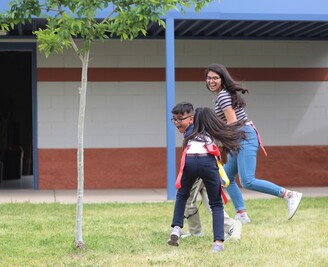 (Alyssa): "Getting involved with Swift on campus allows you to build a small community with like-minded people. It gets you involved in the community by volunteering and helps you create new lifelong friends. As an officer you learn leadership skills and what it takes to run a club. As a member you are also a leader because you mentor youth who are very impressionable at such a young age. Swift gives you 100 hours of community service from Camp Swift and allows you to build on to your resume. Saying you are a part of a club on campus also steps your resume up, especially if you started up this club. Being passionate about Swift shows you truly care about helping the future generation. This type of community service and starting up a club shows you can be a leader and continues to spread the word about how important this foundation is."
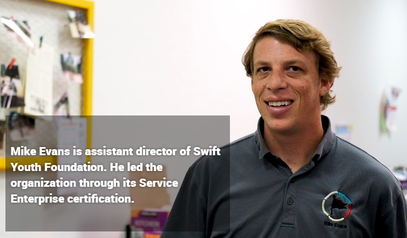 On a Wednesday in June, the Swift Youth Foundation team has been home at their office in Scottsdale, Ariz., for just a few days after the first session of Camp Swift, their annual summer camp in Prescott for economically disadvantaged youth. After hosting a week of outdoor adventure, creative arts projects and fun learning activities for some 150 kids, the team of three is still sifting through piles of camp equipment at the office. One small room is filled with just sleeping bags. “This is a lot better than it looked 12 hours ago,” said Mike Evans, the assistant director. "You can see the floor again." With just three staff members, the team can’t do its work alone. Along with the summer camp, a huge undertaking itself, Swift Youth Foundation offers after-school and out-of-school programs and mentoring throughout the year. To make it all possible, the organization relies heavily on volunteers, with more than 500 volunteer opportunities available each year. But how does such a small team effectively manage such a large volunteer force? That question led Swift Youth Foundation to the Service Enterprise Initiative (SEI) in late 2018. 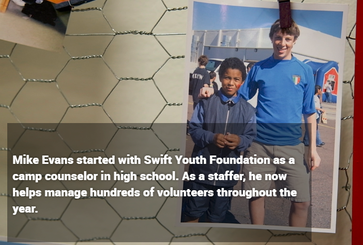 A new offering from the ASU Lodestar Center for Philanthropy and Nonprofit Innovation in partnership with the Arizona Governor’s Office of Youth, Faith and Family, SEI is a national volunteer-management program from Points of Light. Swift Youth Foundation was part of the first cohort at the Lodestar Center and in May became the first of the participants to achieve SEI certification. During the SEI program, participating organizations receive a diagnostic evaluation, 16 hours of training on change management and volunteer engagement strategies, and up to 20 hours of individualized coaching, all working towards certification with Points of Light. Nationally, 92% of participants said their organization was better equipped to engage volunteers, and the program helps organizations find innovative ways to utilize volunteers in all areas of their operations. At the Lodestar Center, 25 organizations have completed or are enrolled in the training. “The Swift Youth Foundation represents a growing number of Arizona nonprofits who desire to enact exemplary volunteer management practices in their operations,” said Dr. Robert Ashcraft, executive director of the ASU Lodestar Center and Saguaro Professor of Civic Enterprise. “The foundation is to be credited for intentionally taking the steps necessary to assure volunteer effectiveness in meeting their important mission, and I applaud them for becoming fully certified as a 'Service Enterprise' through our program.” “The work that SEI provides really aligns nicely with the work that we're trying to do,” Evans said. “[We are] becoming more efficient with how we utilize our volunteers and engage our volunteers.” 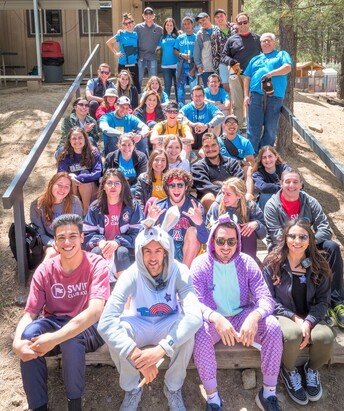 From the start, a spirit of volunteerism Swift Youth Foundation has come a long way since its informal start in 1980 as a summer camp run by a group of teenagers trying to give back to their community, eventually growing into a formal, standalone nonprofit organization with a variety of year-round programs. Their early volunteers were almost entirely high schoolers, just as Evans himself was when he first volunteered at camp. (He continued to volunteer throughout college and his early working years before joining the Swift staff.) Over the last 10 years, they’ve developed additional youth programming to become the organization it is today, needing to grow its volunteer pipeline to match. Today, they provide over 500 volunteer opportunities in numerous roles, from teenage volunteers and youth mentors for the after-school programs to the support staff, lifeguards, nurses, doctors and chefs for the annual summer camp. This year’s summer camp was Swift Youth Foundation’s first with their new SEI certification. Evans said they have a great need at Camp Swift for specifically skilled volunteers. For example, they need healthcare professionals and social workers; many of the kids are away from home overnight for the first time, and the prospect can be stressful for parents and the kids. “For a lot of the parents, knowing that we have certified, registered doctors and nurses on site that if anything happens, their kids are going to get first-class service and healthcare right away, is a big peace of mind,” Evans said. He said SEI was able to affirm what the organization was doing well in its volunteer engagement, while also showing them areas that could be improved – and then giving them the framework to improve it. One change they’ve made is adding a “volunteer needs assessment” to their biweekly staff meeting. This has helped them identify projects and potential leadership roles to help the volunteers feel more valuable and fulfilled. “Every staff member has a chance to bring potential volunteer projects to the table,” he said. “Any time a volunteer is in the office or expressing interest in wanting to help out, we have that resource to look at and say, ‘Okay, here's what we have for you to do.’” 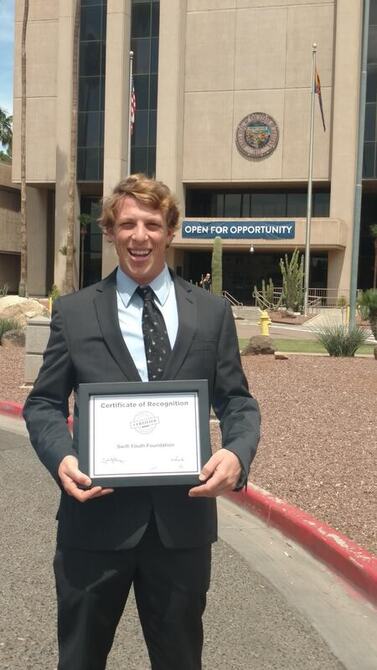 SEI has also helped Swift quantify its impact on the community with a tool called ROVI, or Return on Volunteer Investment. ROVI has shown them that for every $1 they spend, more than $2 is being returned to the community. ”Being able to communicate that to our donors, to our board members, to our community as a whole, to let them know that the work we do does have value, and that the work that our volunteers are providing is important work,” Evans said. “The [SEI] certification really validates the work that we’ve done. Not just to feel good about ourselves, but to also know that what we’re doing in the community is having the impact that we say it is, that we can prove that.” Evans said that, while they’re still just beginning to implement all they learned from SEI, they are excited to see what the future holds as they engage with volunteers, their lifeblood, even more effectively. A team of three can’t put on a summer camp alone, after all, and those piled-up sleeping bags at the office won’t wash themselves. To learn more, please visit the ASU Lodestar website.
Have an idea that isn't on the list? No problem! You can contact us anytime with your next great way to support Swift. Just send us an email at info@SwiftYouth.org to get started! 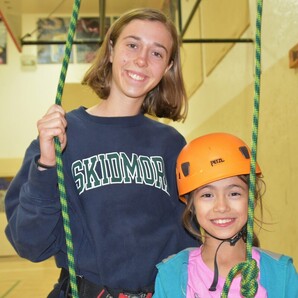 Lance Ozier, EdD May 2019 originally published on ACAcamps.org What do campers need from the counselors who work with them? They need caring relationships with adults they can trust. They need clear limits, high expectations, and healthy challenges. Campers need to be accepted for who they are. They need counselors to support them in taking positive risks and avoiding negative ones. In short, they need you to be the very best you can be. For the last 20 years, most of what I’ve learned about teaching and being a camp counselor is an art: trusting your gut, having good instincts, laughing, and having fun. Yet there is a science behind what we do: interacting positively with participants, individually and in groups; and using strength-based approaches, respectful communication, and affirmative techniques, such as developing trust, listening, and engaging with participants. This is the “stuff” of which high-quality counselors are made. Research suggests that the quality of programs is related to positive youth outcomes, and skilled staff are a critical component of high-quality programming (Vance, 2010). Unpacked and translated into accessible language, here are some important, research-based competencies for working with youth that will help ensure you have the necessary skills to be successful this summer. Continue reading the full article on the American Camp Association website.
|
Online communityThe Grilled Cheese Gazette features blog posts from Swift staff, volunteers, and community members! Contact Us if you're interested in contributing to our blog! Archives
April 2024
Categories |
Swift Youth FoundationIgnites Dreams.
Inspires Learning. Instills Hope. |
|

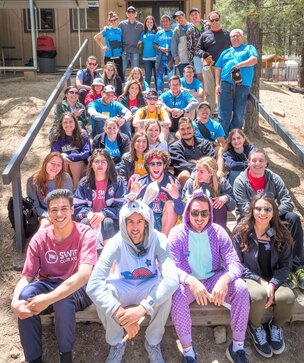
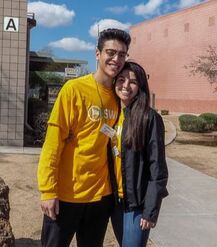






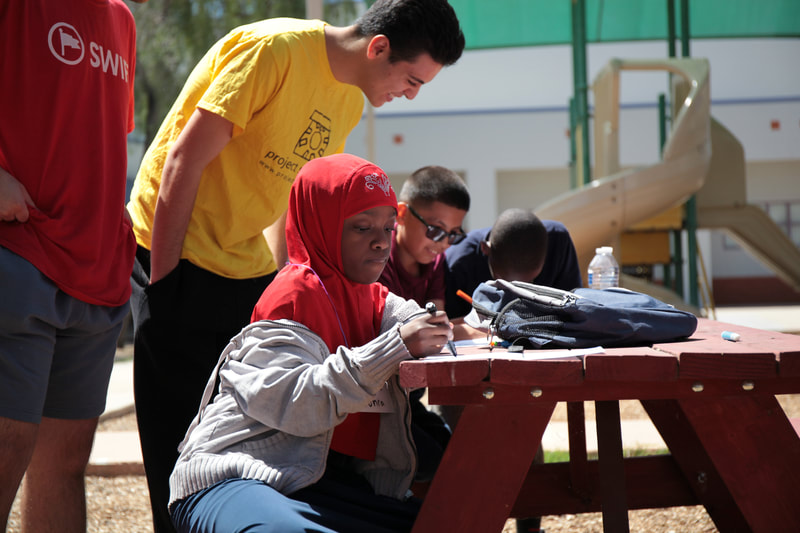


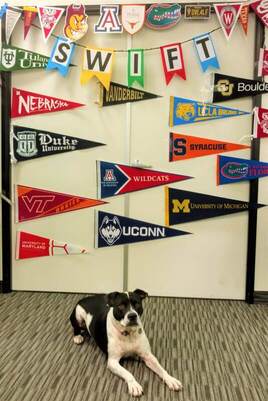
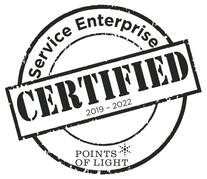


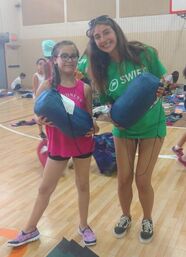
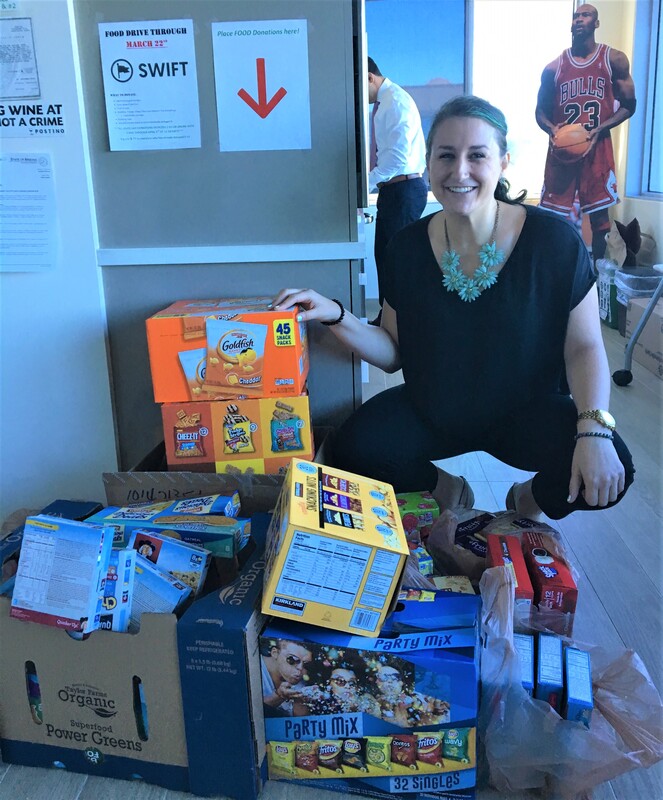

 RSS Feed
RSS Feed